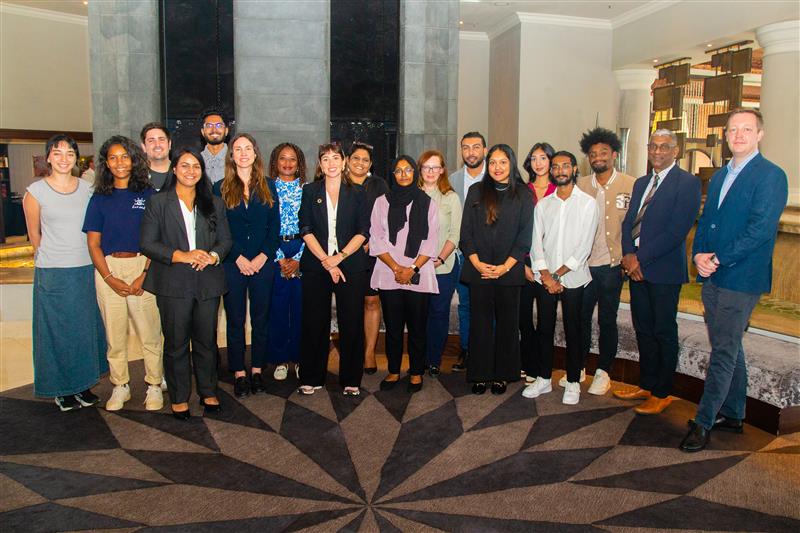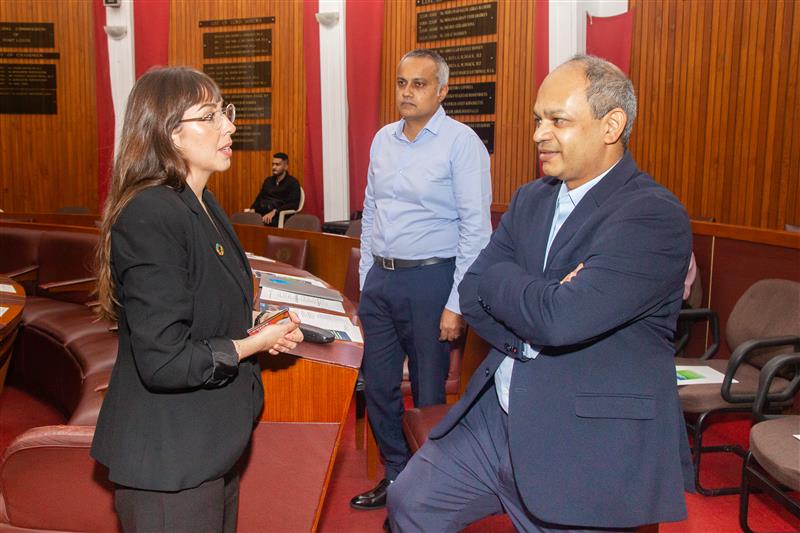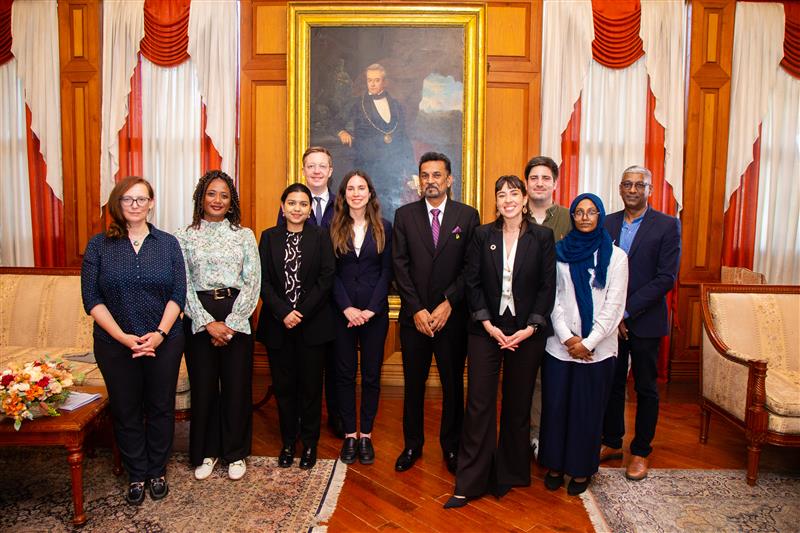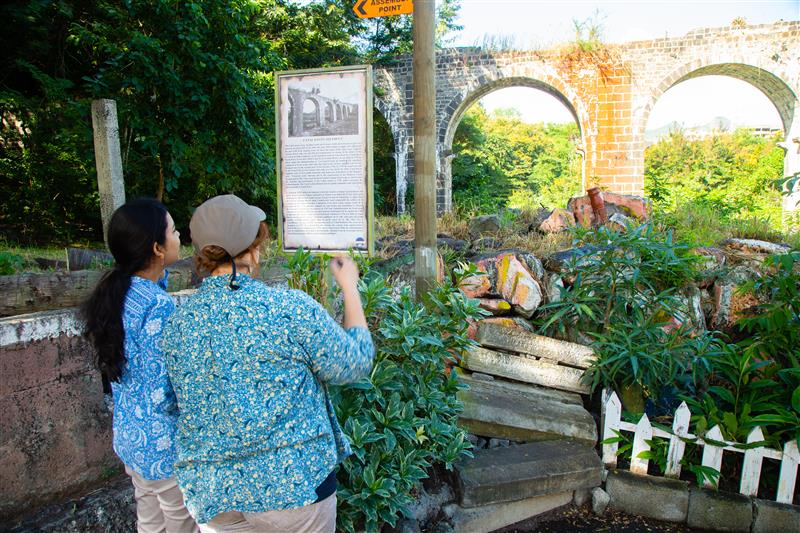Through close collaboration with national and municipal stakeholders, UNEP Copenhagen Climate Centre is supporting the implementation of integrated climate strategies in Mauritius.
By finding and focusing on synergies between nature-based solutions, energy efficiency measures, and approaches to address loss and damage, the initiative aims to enhance urban resilience and deliver long-term, sustainable impact.
In June 2025, UNEP Copenhagen Climate Centre experts joined local partners in Mauritius to reinforce the importance of integrated approaches to climate action, focusing on the three interlinked areas: Nature-Based Solutions, Loss and Damage, and Energy Efficiency. The mission to Mauritius also included consultations with key national and subnational stakeholders to assess specific site vulnerabilities and understand the priorities for addressing loss and damage and to scale nature-based solutions.
Strengthening Synergies Across Climate Priorities
The mission aimed to identify and promote synergies between the three focus areas – nature-based solutions, energy efficiency, and loss and damage.
UNEP Copenhagen Climate Centre’s work on these topics in Mauritius is funded by the Ministry of Foreign Affairs of Denmark (Danida).
Urban nature-based solutions—such as green roofs, bioswales, urban vegetation, and permeable surfaces – can play a central role in attaining co-benefits such as clean air, access to urban green areas for cooling, and increased biodiversity while they reduce the need for mechanical cooling in buildings, directly contributing to energy efficiency.
At the same time, these solutions help buffer urban areas against extreme weather events, reducing both the extent of climate-related loss and the need for post-disaster recovery.
The work on loss and damage includes both economic losses—such as those affecting infrastructure, services, and livelihoods, and equally critical societal impacts, including disruptions to community well-being, cultural heritage, and access to essential services.
Delivering Knowledge and Policy Support
As part of the mission, the UNEP Copenhagen Climate Centre formally handed over a technical report and a policy brief on urban nature-based solutions to the Minister of Environment, Solid Waste Management and Climate Change, Rajesh Anand Bhagwan, and the Lord Mayor and Deputy Mayor of Port Louis, Aslam Adam Hosenally and Giovanni Hensley Laclé.
These documents provide actionable, context-specific recommendations for implementing nature-based solutions in Mauritius, with a focus on the capital city, Port Louis, and complement the country’s and city’s vision for working with nature to support strategies for development and climate resilience.
Read the full report or explore the Mauritius-specific policy brief.
Engaging with stakeholders on the ground and learning about pressure points
As well as meeting with high-level government and municipal representatives, UNEP Copenhagen Climate Centre met and engaged with stakeholders from local communities directly affected by climate change and exponentially impacted by climate-related losses and damages. A roundtable discussion with civil society organizations and NGOs working with climate change and human rights was also hosted to better understand the challenges experienced by all communities living in Mauritius.
Another roundtable with relevant financial institutions in Mauritius was hosted as well to facilitate an exchange on how to scale finance for energy efficiency, nature-based solutions, and loss and damage, focusing on re-risking mechanisms and innovative finance pathways.
Next steps
The mission to Mauritius and the work underway with local stakeholders underscore UNEP Copenhagen Climate Centre’s commitment to supporting countries in developing holistic, inclusive, and locally grounded climate strategies. The Centre will continue the support to Mauritius on aligning efforts across mitigation, adaptation, and resilience, engaging with national and local stakeholders to develop strategies to boost energy efficiency adoption, to address and monitor climate-induced losses and damages, and to mainstream urban nature-based solutions.



